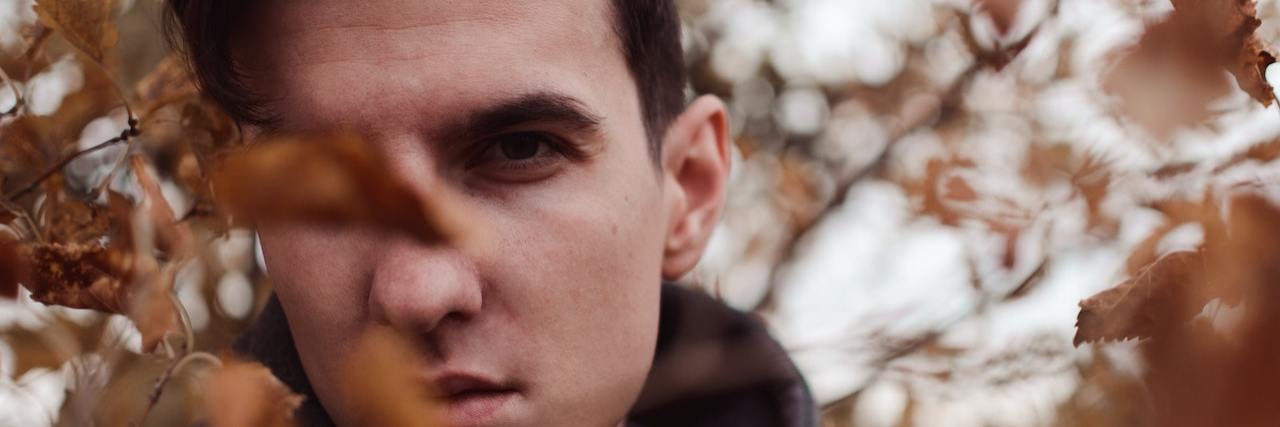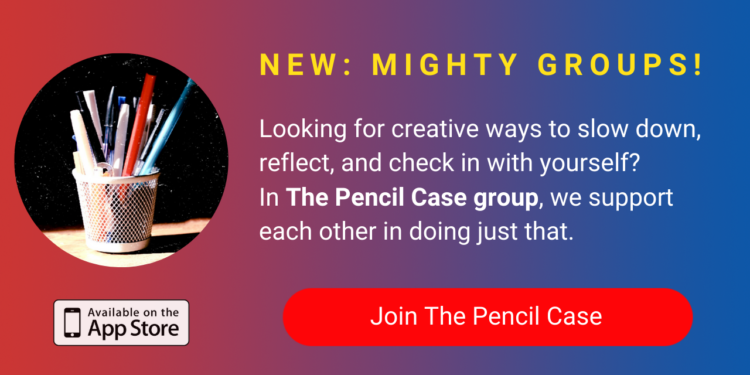How to Better Support Loved Ones Struggling With Suicidal Thoughts
Editor's Note
If you experience suicidal thoughts or have lost someone to suicide, the following post could be potentially triggering. You can contact the Crisis Text Line by texting “START” to 741741.
When you nearly lose a friend to suicide, it’s eye-opening. It awakens you to the reality that your loved ones can be gone in the blink of an eye. Some will post sympathies and claim they didn’t see the signs. Others will post suicide hotlines and urge loved ones to call if they feel like they’re at the end of their rope. What a lot of people don’t realize is that you can never predict whether a suicidal person is going to end their life or not.
For several years, my mental health spiraled into a toxic pit. The environment I lived in was equally as toxic, and I had little support. I couldn’t get rides to my therapist anymore because he’d spoken out against certain individuals who gaslit and manipulated me for years. I was very much alone, and although I had a select group of friends, many would often become irritable with me when I went dark. I got inspirational lessons and lectures on what I could do differently to improve my life. I needed to stop feeling sorry for myself. I needed to exercise more. I needed to distract myself. I stopped reaching out.
I learned to reach out for help when I started therapy before I was 10. My psychiatrist and counselor at the time, the same man, saved my life. He helped me through the bullying in elementary school that resulted in trauma and psychotic symptoms, and he walked my parents through exposure therapy when I developed severe agoraphobia. I couldn’t step past the front door of my home because I was terrified of people. My psychiatrist eventually wrote a letter to the school explaining that I had to be removed for the sake of my mental health.
Sometime around my last day of public school in that city, at 10 years old, I confided in my mom that I didn’t want to exist anymore. I was too young to even find the proper words.
That was my first night in a psych ward. Children’s Hospital. I didn’t stay because my parents were scared for me, and they felt I didn’t belong there. I was terrified and trembling, and I was surrounded by teenagers who’d overdosed or had other issues I couldn’t understand. The nurse threatened to call Child Protective Services on my parents for removing me, but my mom was in tears as my panic attack escalated. She and my dad took me home that night, and homeschooling started not long after.
Years later, as a teenager, I discovered the effect self-harm had on my body. I knew how to hide the scars, and as I lived through an abusive and life-threatening relationship, at 16, I attempted suicide for the first time. At the hospital, doctors berated me for causing my parents grief, and if I didn’t leave the boy I was dating, he would kill me.
From 2013 to 2014, I attempted suicide again three times. I grew familiar with the local psych ward during that time, and I saw how horribly some of the nurses treated patients. Despite this, it saved my life to be there. I had no access to sharp objects and I had to remove the strings from my sweater and shoes. I had numbers written down so I could call family and friends. I spent my days there writing in a composition notebook with a dull pencil.
I posted to social media around this time regularly. I often wrote about being depressed or needing help. Needing a friend. I found that often people would become irritated with me, lecture me on how to improve my life or remind me that I didn’t have it so bad. After a while, I stopped saying anything to anyone. I still have the journal that contains my worst days, as well as my blood.
When I was suicidal, I felt like I was a burden. I was incapacitated with mental illness and constantly pushed to be “normal.” I was forced to get jobs that would cause me to relapse, I had to take driving lessons through my anxiety, and I was expected to wake up early and function normally on an antipsychotic that allowed me to sleep more than four hours a night. I was groggy with brain fog, and I couldn’t accomplish the goals set higher and higher every time I thought I’d succeeded.
Believe people when they say they are at their limit. Understand that mental illness, as well as the psych meds some of us take, wear us down. These conditions may be invisible and on our good days we seem fine, but a bad day could be just around the corner. I’ve felt like a prisoner to the madness in my own head, and to be expected to function normally and chastised when I couldn’t, is what eventually led to me attempting suicide again.
When a celebrity dies, people jump to social media to post suicide hotlines. Everyone suddenly cares for a few days. Many of those people are not there for their struggling friends. They don’t answer concerning posts. They ignore cries for help. They don’t listen when those of us who have been through the struggle try to educate them. Posts on social media about hotlines aren’t enough.
Be there for your friends, especially when they fall silent. Check on those who are in dark places. Check on friends who aren’t in dark places. Depression, and other conditions that cause suicidal thoughts, can’t be seen on the surface. A smiling friend isn’t always a happy friend.
If you post suicide hotlines on your social media feed, please make the effort to back up your support. Listen to us when we try to educate you. Most people don’t have the will to call a stranger when they’re at their limit. They need a friend or loved one, and you just might save their life.
(If you feel your loved one is in immediate danger to themselves or others, do not hesitate to call 9-1-1 or your local emergency service).
Photo by Taras Chernus on Unsplash


